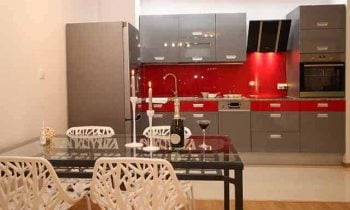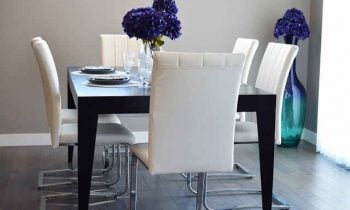Feng shui is a Chinese philosophical system which dictates rules on spatial arrangement and orientation in relation to energy flow. It has been used for centuries by both the Chinese and non-Chinese people to bring in good luck and drive away bad luck through the arrangement of their homes.
Applying the concepts of feng shui in the dining room is said to result in the promotion of health, digestion and harmonious relations in the home. Not to mention, feng shui also provides aesthetically-pleasing design ideas for the home.
Here are some feng shui do’s and don’ts to guide you in designing your dining room.
Dos
- Give priority to a good view. According to experts, one should have a peaceful scene to look on while eating like a garden for one. If you’re dining room opens to an unpleasant view, you can cover the windows with curtains or blinds to detract your attention from it.
- Make sure to place the dining table in the center of the room as it is what brings a family together.
- To represent the abundance that you want to attract into your dining room, place pictures of food or fruit around the rooms eastern area.
- Try to have two doorways or passageways in the dining room as they could encourage the flow of energy or chi in your dining space and the rest of your house.
- Avoid sitting far apart from other family members and avoid sitting a person in a corner of the table as it is believed to bring bad luck upon the person like digestive problems. Octagon-shaped and round tables are preferred.
- Invest in comfortable chairs with good back rests and arm rests to ensure that the ones sitting can eat well, digest well and enjoy their meal.
- Make sure that there is equal space on all sides of your dining room table.
- Hang a chandelier or pendant light fixtures above the dining table to balance out the energy in the room. This also coincides with Western design tips of putting the primary light source directly above the dining table which serves as the centerpiece of the room.
- Create a pleasant atmosphere in your dining room by painting and decorating walls and other open space areas light, neutral colors. Experts advice on avoiding wall papers with busy designs to not ‘splinter’ the chi or the energy of the room.
- Add decorations related to water or flow. You can incorporate small water fountains or aquariums around your dining table to achieve this.
Don’ts
- Avoid putting depressing or violent images to decorate your dining room walls.
- Never leave dead plants or wilted flowers in the dining room as they represent stagnant energy. Make sure to regularly water plants or replace flowers in vases.
- Never put a television set in the dining room. Meals should remain a time for the family to bond and communicate. The sound and imagery of the television will greatly prevent that.
- Don’t leave or keep your cleaning supplies in the dining room. Experts say they symbolize the ‘cleaning out’ of your income, good health, nutrition and prosperity.
- Keep the number of chairs in your dining table even as even numbers represent luck while odd numbers entail loneliness.
- Never use cracked or broken silverware or plates as they bring bad luck.
- Avoid hanging or displaying pictures or sculptures of winged animals in the dining area as they create an imbalance in the room.
- Avoid other distractions by separating the dining room from other rooms in the house such as the kitchen or the living room.
- Don’t place your table against the wall as this makes for an uncomfortable sitting position for those sitting against the wall.
You may think feng shui doesn’t really work and that it’s pseudoscience. But you can’t deny the fact that its principles make for a dining room that has a functional, comfortable layout and pleasing design.

 5 ways to make a Small Living Room feel spacious
5 ways to make a Small Living Room feel spacious Budgeting Bathroom remodeling
Budgeting Bathroom remodeling Kitchen remodeling step by step
Kitchen remodeling step by step Dining room Feng Shui Dos and don’ts
Dining room Feng Shui Dos and don’ts